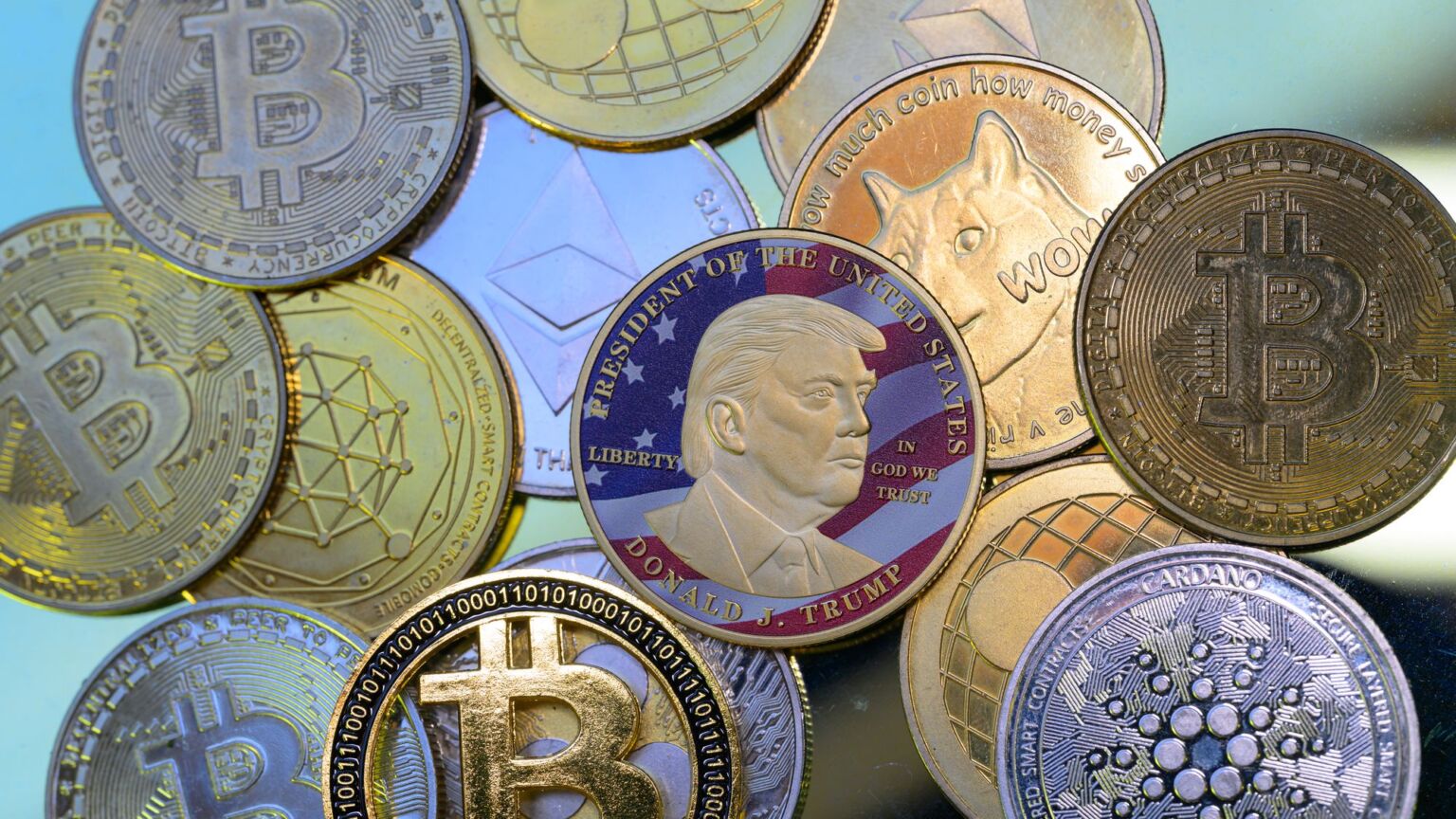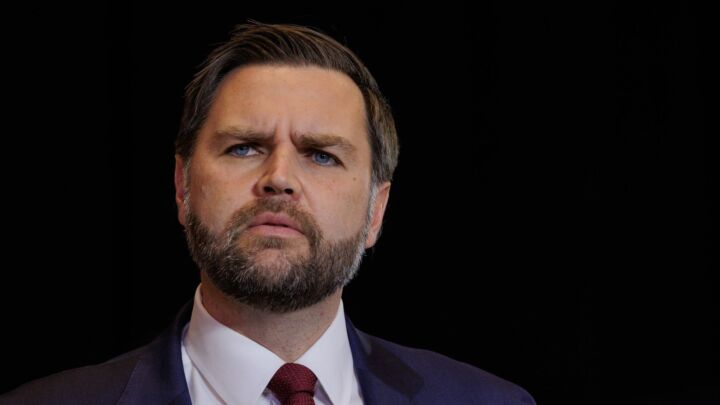What Trump and crypto have in common
The US president's foray into 'meme coins' taps into a deep public cynicism with the old financial order.

Want unlimited, ad-free access? Become a spiked supporter.
Since the Romans, emperors have stamped their image on coins. Now, so has Donald Trump in the shape of his personal ‘meme coins’, one of the strangest artefacts in crypto finance.
Also known as ‘altcoins’ or ‘shitcoins’, meme coins are digital tokens that have ‘little to no value or no immediate, discernible purpose’, in the words of Investopedia. A new coin can be created with a couple of clicks, with its value entirely dependent on market confidence. There’s literally nothing there.
Trump was highly critical of cryptocurrency in his first term, but recent actions reveal the extent to which his attitude has shifted. During the 2024 election, he campaigned on the promise to make the US the ‘bitcoin superpower of the world’. He even announced plans for a federal ‘Strategic Bitcoin Reserve’ in March. On 18 January, days before his inauguration, the president formally entered the ‘shitcoin’ market (now there are some words you thought you’d never read), with new coins called $TRUMP and $MELANIA, named after the first lady.
Some investors in Trump’s latest business project did very well. Last week, Chainalysis found that 58 wallets had yielded over $1 billion in profits from Trump’s meme coins. But far more people will be ruing their investment. Two days after the launch, the $TRUMP coin was nominally worth $73. At the time of writing, it’s worth $14. As you would expect, many who retained their holding lost out – last week, it was reported that 764,000 have now lost on the investment.
Either way, ownership of $TRUMP buys access – if you have bought enough. Last month, Trump announced that the 220 biggest holders in the coin will be invited to a ‘private gala’ with him on 22 May. This caused the value of the coin to rise by more than 70 per cent. We now find ourselves with a president lending his name and brand to something that has been compared with a ‘legalised Ponzi scheme’, from which his family benefit significantly.
Predictably, this hasn’t gone down well with Trump’s opponents. As 80 per cent of the $TRUMP and $MELANIA coins are owned by ‘Trump-linked entities’, there are accusations that companies are buying the coin simply to peddle influence. Reportedly, Trump’s crypto ventures now represent 40 per cent of his net wealth, or $2.9 billion. This is set to soar even higher. An Emirati investment firm has announced it will use Trump’s digital coins to transact a $2 billion dollar deal. Democratic senators are now seeking to outlaw Trump’s crypto investments, telling the media that the endeavour is ‘profoundly corrupt’ and a danger to national security.
Should we condemn Trump for cashing in on crypto? Arguably his memecoin isn’t any more outlandish than his threats to annex Canada or plans to reopen Alcatraz. In many ways, the $TRUMP coin is entirely consistent with a character who not only exploits the value of his brand, but is also seemingly indifferent to accusations of vulgarity. Crypto resembles a giant game in which the players strongly suspect they are being scammed, but don’t particularly care. This is simply a confidence exercise, the type of which the president relishes.
Consciously or not, Trump is also tapping into a deep cynicism many feel towards financial markets. Crypto has emerged in recent years as faith in capitalism has declined. Big business is operated by giant platforms and cosy cartels, while ordinary people remain stuck with the financial system that inadvertently engineered the 2008 crash, from which real wages have not recovered. Twelve per cent of British adults have dabbled in crypto finance, according to the UK Treasury – a sure sign of its growing popularity.
But this shadow financial system is also riddled with crime, from blatant scams to theft. In this way it resembles the 1920s, when the world was also emerging from a pandemic. In that decade, people were tempted into reckless financial speculation on difficult-to-understand schemes, such as exotic financial instruments, land deals and boiler-room scams, which all promised extravagant returns.
Crypto has been slammed by critics as ‘financial nihilism’. But when the established financial apparatus has offered so little, who can blame the punters for trying their luck elsewhere? As YouTuber and former hedge-fund manager Patrick Boyle says, crypto is ‘a way to get rich in an essentially meaningless world’.
Elites may clutch their pearls with horror at the rise of crypto, just as they have with the rise of populism. A wiser response would be to offer a financial and economic system that people can buy into.
Andrew Orlowski is a weekly columnist at the Telegraph. Visit his website here. Follow him on X: @AndrewOrlowski.
£1 a month for 3 months
You’ve hit your monthly free article limit.
Support spiked and get unlimited access.
Support spiked – £1 a month for 3 months
spiked is funded by readers like you. Only 0.1% of regular readers currently support us. If just 1% did, we could grow our team and step up the fight for free speech and democracy.
Become a spiked supporter and enjoy unlimited, ad-free access, bonus content and exclusive events – while helping to keep independent journalism alive.
———————————————————————————————————————————–
Exclusive January offer: join today for £1 a month for 3 months. Then £5 a month, cancel anytime.
———————————————————————————————————————————–
Monthly support makes the biggest difference. Thank you.










Comments
Want to join the conversation?
Only spiked supporters and patrons, who donate regularly to us, can comment on our articles.